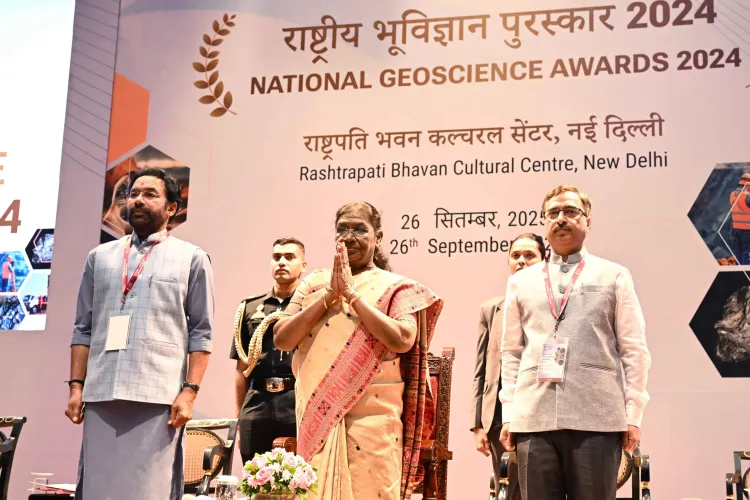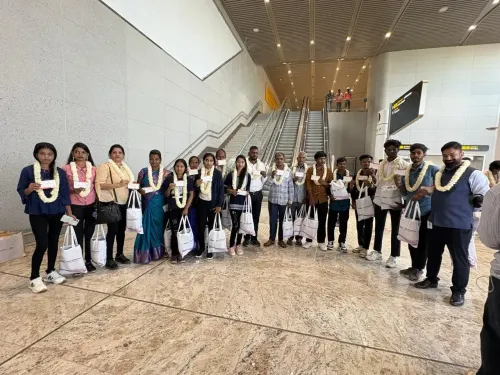Is Self-Reliance in Rare Earth Element Production Crucial for India's Development and National Security?

Synopsis
Key Takeaways
- Self-reliance in REE production is critical for national security.
- REEs are fundamental to modern technologies.
- Geoscientists play a vital role in sustainable resource management.
- Mining practices need to be environmentally sustainable.
- Indigenous technology can enhance REE production efficiency.
New Delhi, Sep 26 (NationPress) India must achieve self-reliance in the production of rare earth elements (REEs), a vital component for the country’s development and national security, stated President Droupadi Murmu on Friday.
Speaking at the National Geoscience Awards-2024 held at the Rashtrapati Bhavan Cultural Centre, the President emphasized that REEs serve as the backbone of contemporary technology and highlighted the importance of developing technologies to make them effective.
“In light of the current geopolitical landscape, India must ensure self-sufficiency in their production. This is essential for realizing the vision of a developed India and securing national interests,” President Murmu remarked.
“Rare Earth Elements (REEs) are fundamental to modern technology, powering devices from smartphones and electric vehicles to defense systems and renewable energy solutions,” she noted.
The President pointed out that REEs are labeled as rare not due to their scarcity, but because the refining process to make them usable is highly intricate.
“Creating indigenous technologies to navigate this complex process would significantly benefit national interests,” President Murmu added.
She also encouraged geoscientists to innovate methods to tap into ocean resources, mitigate mining's environmental impact, and protect marine biodiversity.
President Murmu highlighted how minerals have been pivotal in the evolution of civilization, from the Stone Age, Bronze Age, and Iron Age to the industrial era.
While acknowledging that mining fuels economic growth and generates substantial employment opportunities, the President warned of its adverse effects, such as displacement of communities, deforestation, and pollution.
She urged geoscientists to focus on geo-environmental sustainability in mining practices and stressed the necessity of proper mine closure procedures to safeguard both residents and wildlife.
“We need to enhance technology to add value to mineral products and reduce waste, which is essential for sustainable mineral development,” President Murmu advised.
Moreover, she pointed out that with oceans surrounding the country on three sides, geoscientists should explore these waters as they may conceal a wealth of valuable minerals.
“We must innovate technologies to responsibly extract resources from beneath the ocean floor for the nation’s advancement while protecting marine biodiversity,” the President concluded.









